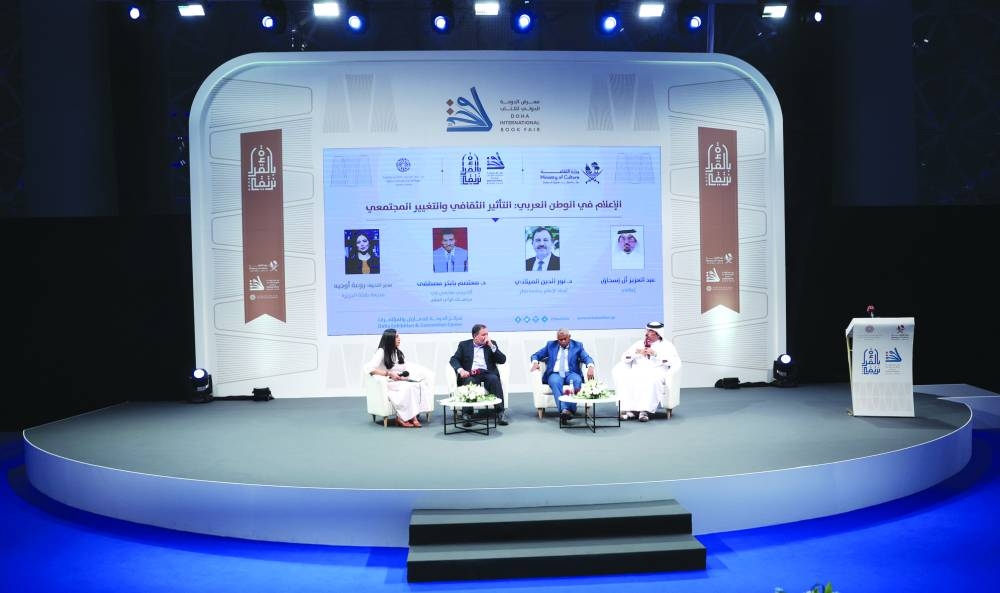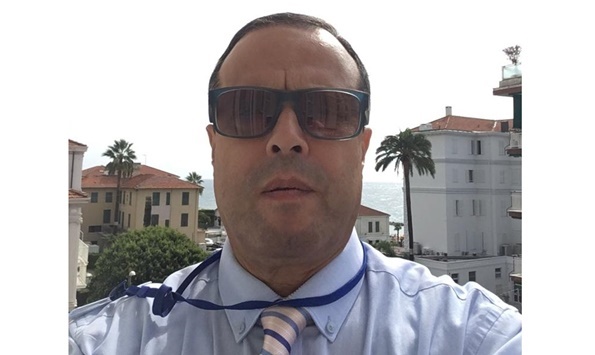Among the highlights of the ongoing 32nd Doha International Book Fair (DIBF) are a number of seminars, such as the one held on Tuesday titled "Media in the Arab World: Cultural Impact and Societal Change", at the Doha Exhibition and Convention Centre.
Al Jazeera Centre for Studies and Al Jazeera Mubasher, organised the seminar with speakers: Dr Noureddine Miladi, Professor of Mass Communication at Qatar University; Dr Mutasim Babiker, an academic specialising in public opinion studies; and Qatari journalist Abdulaziz al-Ishaq, and moderator, Rawa Oger, a news presenter on Al Jazeera Network.
Dr Miladi presented the remarkable technological development in the field of communication and the interaction of young people with it. This in turn made academics, thinkers and communication specialists realise that the past has been surpassed and interaction during crises confirms that technology has changed the world.
Miladi said: “We are living another exceptional phase that began decades ago, but came to surface during the past months, it is AI (artificial intelligence). As the world today has exceeded social networks, questions are raised about AI and what it represents for education, health, the media, and decision makers around the world.”
He emphasised that the world today needs to set laws for the use of AI, be it for students, researchers or media professionals, and proceed to rationalise it with regulations to protect the youth and children and streamline the use of these platforms while making the role of the family more proactive, as well as civil societies.
Dr Mutasim Babiker backed the need for scientific studies to measure the impact of modern technology and communication, because what is disseminated is sometimes inaccurate, also many may open the material received in the media, and not read it, let alone interact with it.
Babiker added that “today there are many influencers, starting with leaders, rulers, commanders, celebrities and others, but the media’s role remains in creating a cognitive impact on the recipient.”
Abdulaziz al-Ishaq said: “The current concern is how to control the reactions to the communicated message, and whoever previously had control over the media pursues to control its message today and its feedback as well, and that this is done through directing influencers.”
Al-Ishaq pointed out that the influence of social media influencers differs from one country to another and from one person to another, indicating there is a gap between those who are in charge of culture and the influencers. “Intellectuals see that the influencers are used in marketing only, while they themselves sometimes seek help from those who promote their stories, which establishes their actual influence until they got media authority today, due to the decline of traditional media channels that are also inclined to develop by using new platforms.”

The seminar in session.

